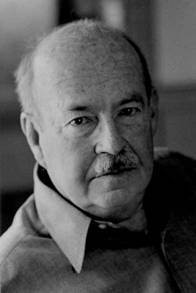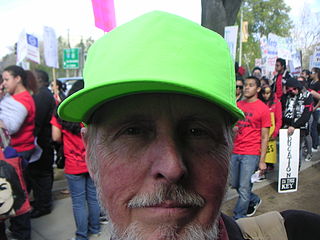Related Research Articles
Systems theory is the interdisciplinary study of systems, i.e. cohesive groups of interrelated, interdependent components that can be natural or human-made. Every system has causal boundaries, is influenced by its context, defined by its structure, function and role, and expressed through its relations with other systems. A system is "more than the sum of its parts" by expressing synergy or emergent behavior.

Talcott Parsons was an American sociologist of the classical tradition, best known for his social action theory and structural functionalism. Parsons is considered one of the most influential figures in sociology in the 20th century. After earning a PhD in economics, he served on the faculty at Harvard University from 1927 to 1929. In 1930, he was among the first professors in its new sociology department. Later, he was instrumental in the establishment of the Department of Social Relations at Harvard.

Robert King Merton was an American sociologist who is considered a founding father of modern sociology, and a major contributor to the subfield of criminology. He served as the 47th President of the American Sociological Association. He spent most of his career teaching at Columbia University, where he attained the rank of University Professor. In 1994 he was awarded the National Medal of Science for his contributions to the field and for having founded the sociology of science.

In sociology, social complexity is a conceptual framework used in the analysis of society. Contemporary definitions of complexity in the sciences are found in relation to systems theory, in which a phenomenon under study has many parts and many possible arrangements of the relationships between those parts. At the same time, what is complex and what is simple is relative and may change with time.
Neil Joseph Smelser (1930–2017) was an American sociologist who served as professor of sociology at the University of California, Berkeley. He was an active researcher from 1958 to 1994. His research was on collective behavior, sociological theory, economic sociology, sociology of education, social change, and comparative methods. Among many lifetime achievements, Smelser "laid the foundations for economic sociology."

David Easton was a Canadian-born American political scientist. From 1947 to 1997, he served as a professor of political science at the University of Chicago.
A system is a group of interacting or interrelated elements that act according to a set of rules to form a unified whole. A system, surrounded and influenced by its environment, is described by its boundaries, structure and purpose and expressed in its functioning. Systems are the subjects of study of systems theory and other systems sciences.
Walter Frederick Buckley was an American sociologist, and professor of sociology at the University of New Hampshire. Buckley was among the first to apply concepts from general systems theory based on the work of Bertalanffy to sociology
Social entropy is a sociological theory that evaluates social behaviours using a method based on the second law of thermodynamics. The equivalent of entropy in a social system is considered to be wealth or residence location. The theory was introduced by Kenneth D. Bailey in 1990.
Living systems are open self-organizing life forms that interact with their environment. These systems are maintained by flows of information, energy and matter.
Peter Andrew Corning is an American biologist, consultant, and complex systems scientist, and Director of the Institute for the Study of Complex Systems, in Seattle, Washington, and is known especially for his work on the causal role of synergy in evolution.

Christopher K. Chase-Dunn is an American sociologist best known for his contributions to world-systems theory.
Jonathan H. Turner, is a professor of sociology at University of California, Riverside.
Carlos Alberto Torres Novoa is a distinguished professor.
David Reuben Jerome Heise was a social psychologist who originated the idea that affectual processes control interpersonal behavior. He contributed to both quantitative and qualitative methodology in sociology. He retired from undergraduate teaching in 2002, but continued research and graduate student consulting as Rudy Professor of Sociology Emeritus at Indiana University. He is most well known for his work on affect control theory. Heise died on September 28, 2021, after a brief illness.

Nikolai Genov is an internationally respected sociologist of Bulgarian origin. He received his doctorate of Philosophy in sociology from the University of Leipzig in 1975 and his doctorate of Science from the Bulgarian Academy of Sciences in 1986. In 1990 he became a professor at BAS. Between 2002 and 2011 he was a professor of sociology at the Institute of Sociology and Institute of Eastern European Studies of the Free University of Berlin. From 2011 until 2016 he was the head of the Institute of Global and Regional Development at the School of Advanced Social Studies in Slovenia. He has conducted research and taught at the universities of Berkeley, Bielefeld, Frankfurt am Main, Cassel, Lund, Moscow, Rome, Seoul, and Warsaw.
Gerald Fredrick (Jerry) Davis is an American sociologist and the Gilbert and Ruth Whitaker Professor of Business Administration at the University of Michigan, known for his work on corporate networks, social movements and organization theory.
Allen Erwin Liska was an American sociologist and criminologist. He was a full professor at the University at Albany, SUNY from 1982 until his death in 1998, having originally joined the faculty there in 1979. From 1985 to 1988, he was the chair of the Department of Sociology there. He supervised more Ph.D. students than any other faculty member in the University at Albany, SUNY's sociology department. During his career, he also served as chair of the American Sociological Association's Section on Crime, Law, and Deviance. He was named a fellow of the American Society of Criminology in November 1998. In 1999, he was one of four University at Albany, SUNY faculty members to receive the university's Excellence in Research Award.
Terence Patrick Thornberry is an American criminologist who has been a Distinguished University Professor in the Department of Criminology and Criminal Justice at the University of Maryland since 2012. Before he joined the faculty of the University of Maryland in 2009, he was a professor of sociology at the University of Colorado and the director of their Problem Behavior Program from 2004 to 2009. Before that, he was a professor at the University at Albany, SUNY from 1984 to 2001, and a Distinguished Professor there from 2001 to 2004. He served as the dean of the University at Albany, SUNY School of Criminal Justice from 1984 to 1988 and as director of the Hindelang Criminal Justice Research Center there from 1997 to 2003. He is known for his research on delinquency, including the "interactional theory" he proposed in 1987 to explain its origins. This theory is based on Travis Hirschi's work on social bonding and Ronald Akers' work on social learning theory.
References
- ↑ Curriculum Vitae Archived 2006-09-02 at the Wayback Machine of Kenneth D. Bailey.